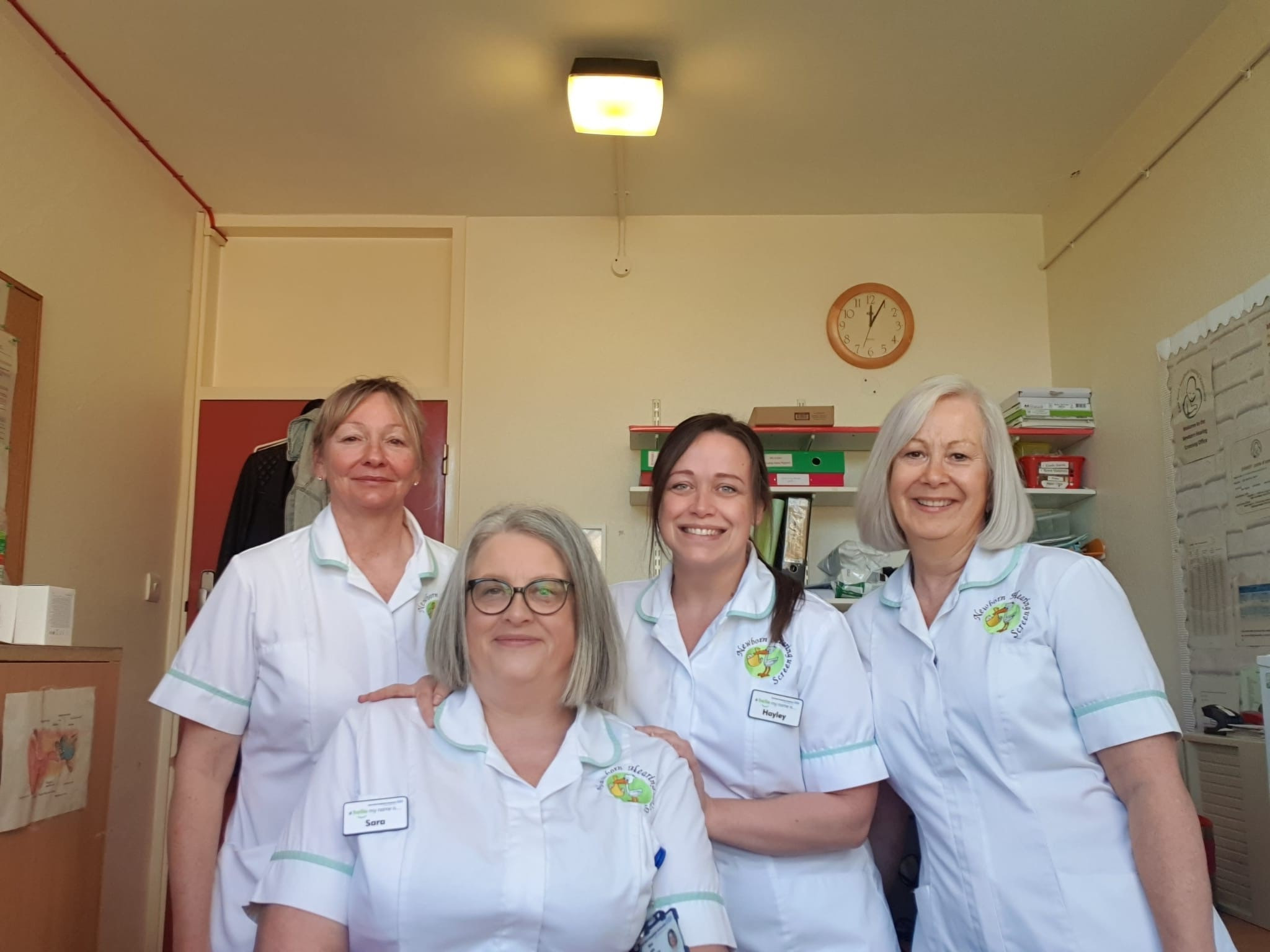
Celebrating two decades of newborn hearing screening in East Kent Hospitals
The newborn hearing screening service at East Kent Hospitals is 20 years old this week – and two of the screeners have been there since the very beginning.
Sara Hills and Hayley Keeler joined the team when it was first set up and have since screened thousands of babies for signs of hearing loss or deafness.
For Hayley, senior screener at the Queen Elizabeth The Queen Mother Hospital in Margate, who had been working in a children’s nursery, it felt like the planets were aligning when she applied for the role.
She said: “I’d decided the nursery wasn’t for me, and I wanted to work for the NHS, so I called the hospital to see if there were any jobs available and this one was closing the next day.
“I had to drive over to Canterbury to pick up the application form, drive home and fill it in, and then drive back to hand it in – and I had an interview a few days later!
“I love how different every day is, and the fact that we are often able to help people beyond just carrying out the hearing screen.
Sara, senior screener at the William Harvey Hospital in Ashford, was working night shifts as a maternity care assistant and healthcare assistant at the hospital when she saw the job advertised.
She said: “I absolutely love it. I work with an amazing team and get to be part of a really special time in a family’s life.
“It is really rewarding to know we are helping to make a difference.”
The screening test takes a few minutes, and involves placing a small, soft-tipped earpiece in the baby’s ear. Soft clicking sounds are played, and the inner part of the ear, called the cochlea, responds, which can be picked up by the screening equipment.
Sara said: “I remember one family who had other children who were profoundly deaf. I screened their last child and it suggested bilateral hearing loss, so they were referred to audiology.
“Their experience was so much more positive after hearing aids were fitted at a young age, rather than waiting for it to be picked up later.”
Hayley also remembers particular families from the past two decades.
She said: “One that really stands out is a mum who has hearing loss, and her husband who also has hearing loss.
“When I screened their baby, I found the baby was hearing, which I had naively assumed was good news.
“But she was upset – she wanted to bring the child up as part of the deaf community and had to adapt just as much as hearing families have to adapt to having a child with hearing loss.”
Hayley also experienced being on the other side of the service, after her own children were screened for hearing loss.
She said: “The screening was carried out by my colleagues and it was quite difficult for me – I wanted to jump up and look at what the equipment but I sat on my hands because I was aware they knew what they were doing.”
Sara and Hayley’s roles have changed over the years. Both are now senior screeners at different sites, they now have a uniform after initially starting without them, and their equipment has also developed.
Hayley said: “At the beginning we had large laptops on trolleys and we used USB sticks – now the equipment is smaller, hand-held and much easier to move around.”
Sara added: “I do get some people who stop me in the supermarket to chat and I don’t always recognise them – we have seen so many families over the years but it’s always lovely to hear positive feedback.”